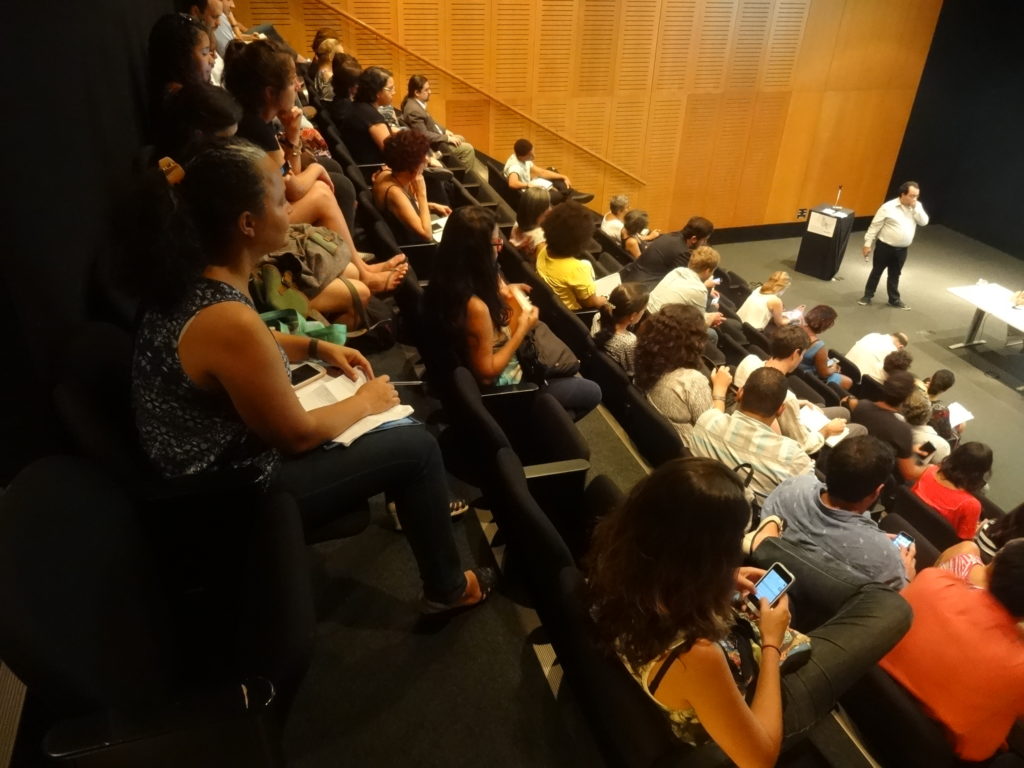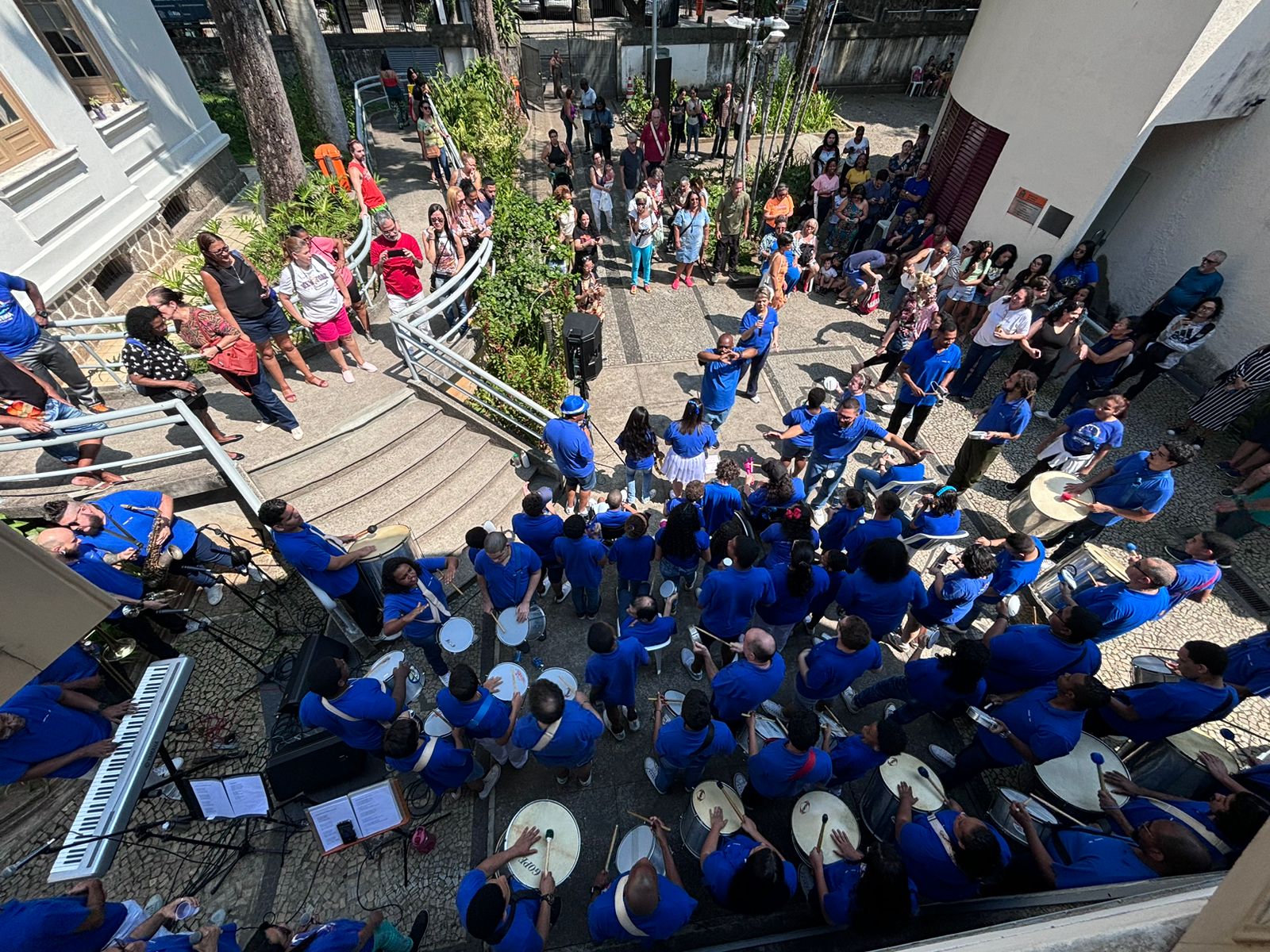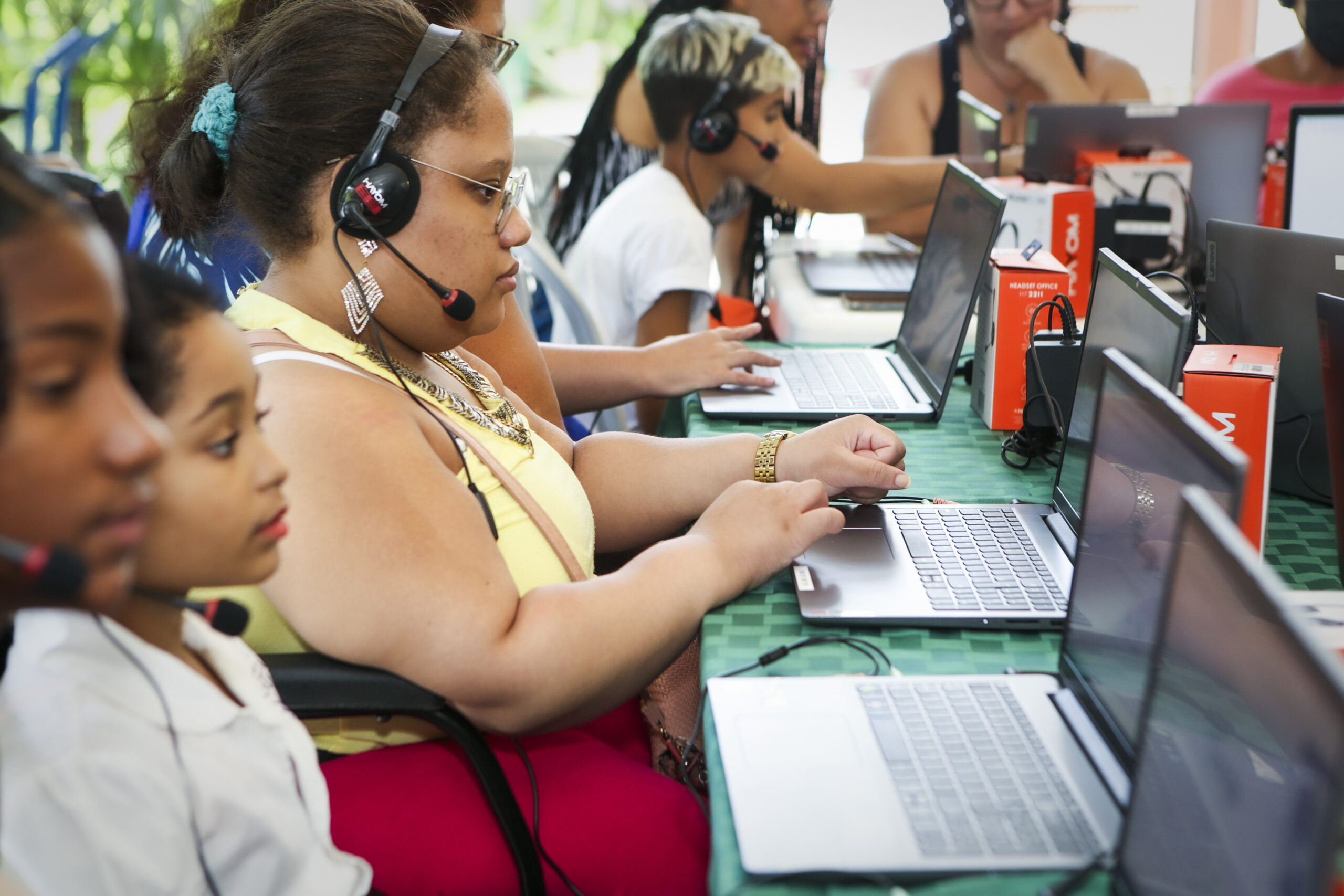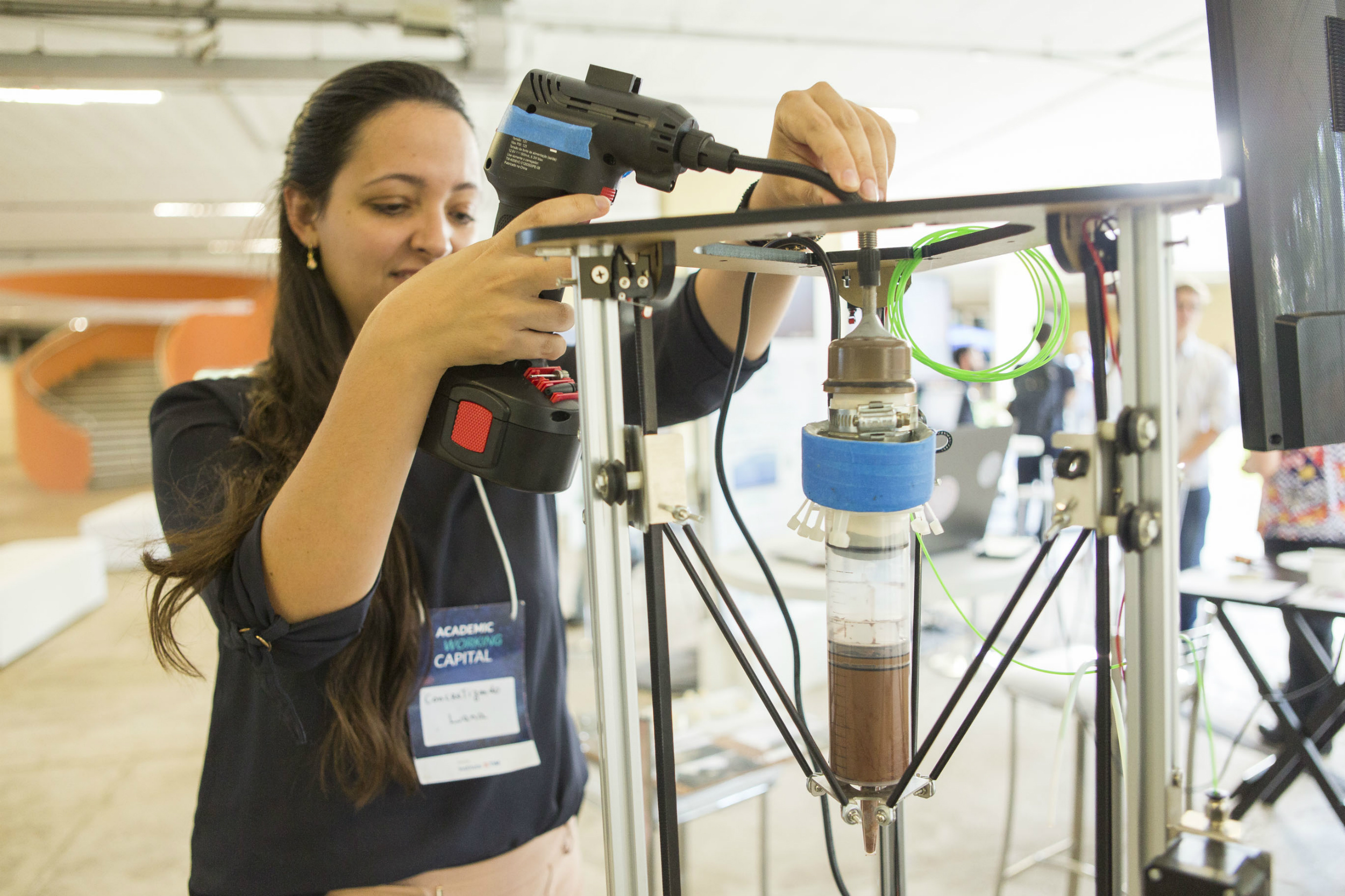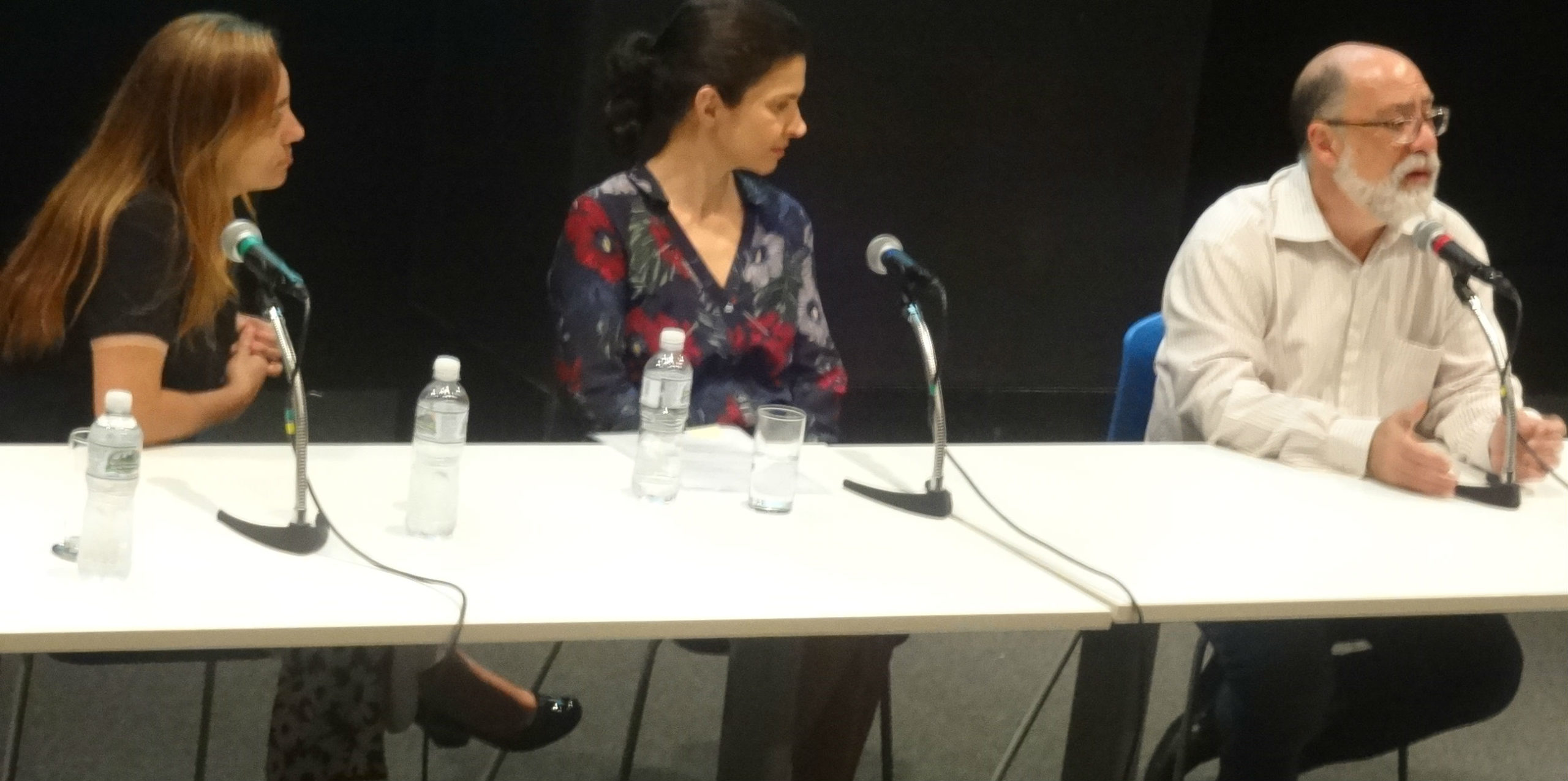
The Agentes da Transformação project, carried out by Instituto TIM in partnership with Pereira Passos Institute (IPP), organized an event to publish the data of the survey held in 2015 on the youth of the pacified communities of Rio de Janeiro. On February 25, in the Art Museum of Rio de Janeiro (MAR), about 75 guests learned about the result of the work done by the young scholarship students in the third edition of the project. The audience was made up of representatives of municipal and state departments of Rio de Janeiro, civil society organizations and partner institutions of the project, such as the United Nations Children’s Fund (UNICEF).
The IPP president, Sérgio Besserman, the IPP director of Special Projects and Agentes da Transformação coordinator, Andrea Pulici, and the Instituto TIM representative, Maria da Glória Ganem Rubião, composed the event’s opening panel. The IPP manager of Survey and Evaluation, Danilo Carvalho, presented the survey data. Then Andrea answered the audience’s questions.
The survey was conducted in 18 communities in 12 areas with Pacifying Police Units (UPP) installed in Rio de Janeiro. Approximately 6,000 young people between 14 and 24 years old were interviewed by the project young scholarship students and answered questions about their habits and social, economic and cultural conditions. The area of vocational courses that raised most interest on young people was one of the information gathered by the survey. The most mentioned were information technology, design, construction, tourism and arts. Only 14% of the respondents said they do not study, do not work and are not looking for a job.
Andrea explains that the common idea of the young slum dwellers is precisely that they are not interested, but the reality is not that. “They want more, they have the desire to do, but they do not know how,” she states. “The information needs to get these young people, and not through a brochure, an advertisement, they have to look for other mechanism. It is via an active search, an application… These young people are 100% connected, their technological progress is impressive,” she says. According to the IPP director, the survey is a way to understand what these young people want, so that later it is possible to think of policies and solutions that meet their needs.
The selection of young scholarship students to participate in the Agentes da Transformação project in 2016 is in its final phase. Between March 1 and 4, the first training takes place, which will guide the students to carry out the identification of households where the interviews will be held. The identification stage will be between March 5 and April 5. This year, the survey will cover the entire Rocinha area, three communities in Lins Complex and a community in Maré. After this edition, the project will have interviewed young people from all pacified areas of Rio de Janeiro.
